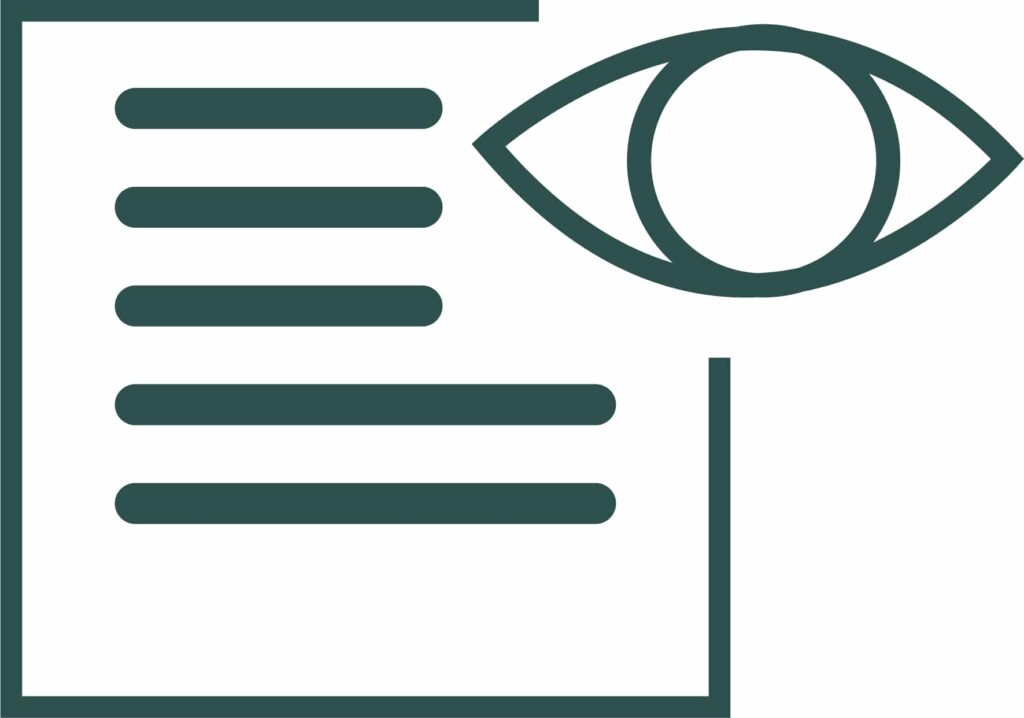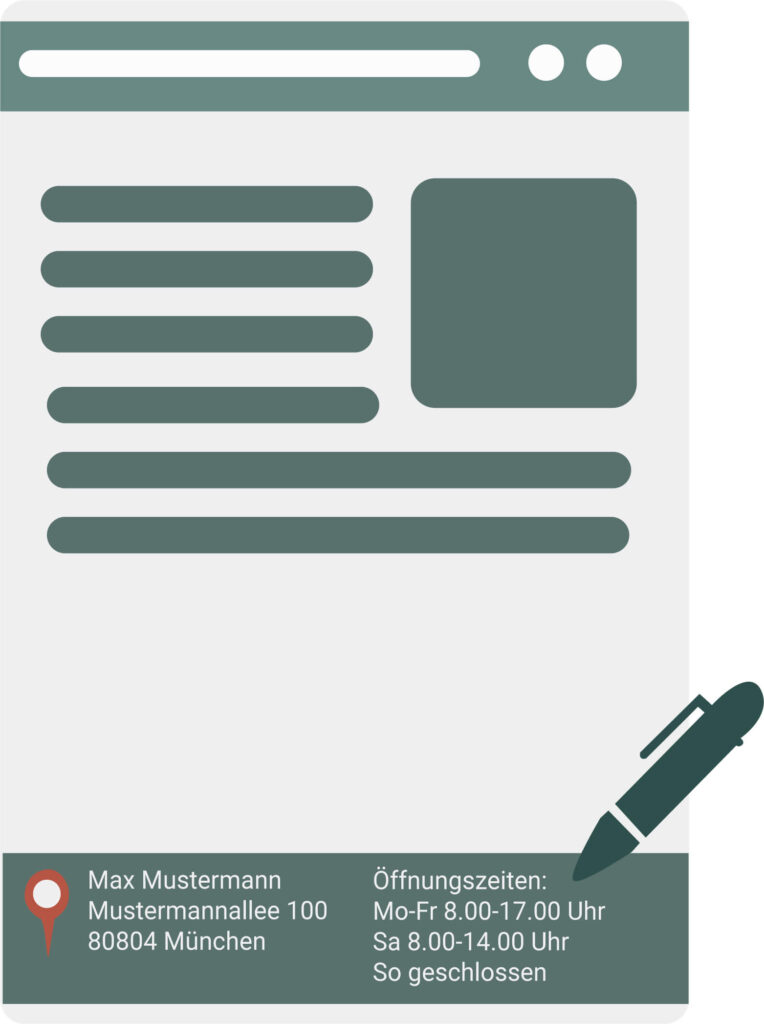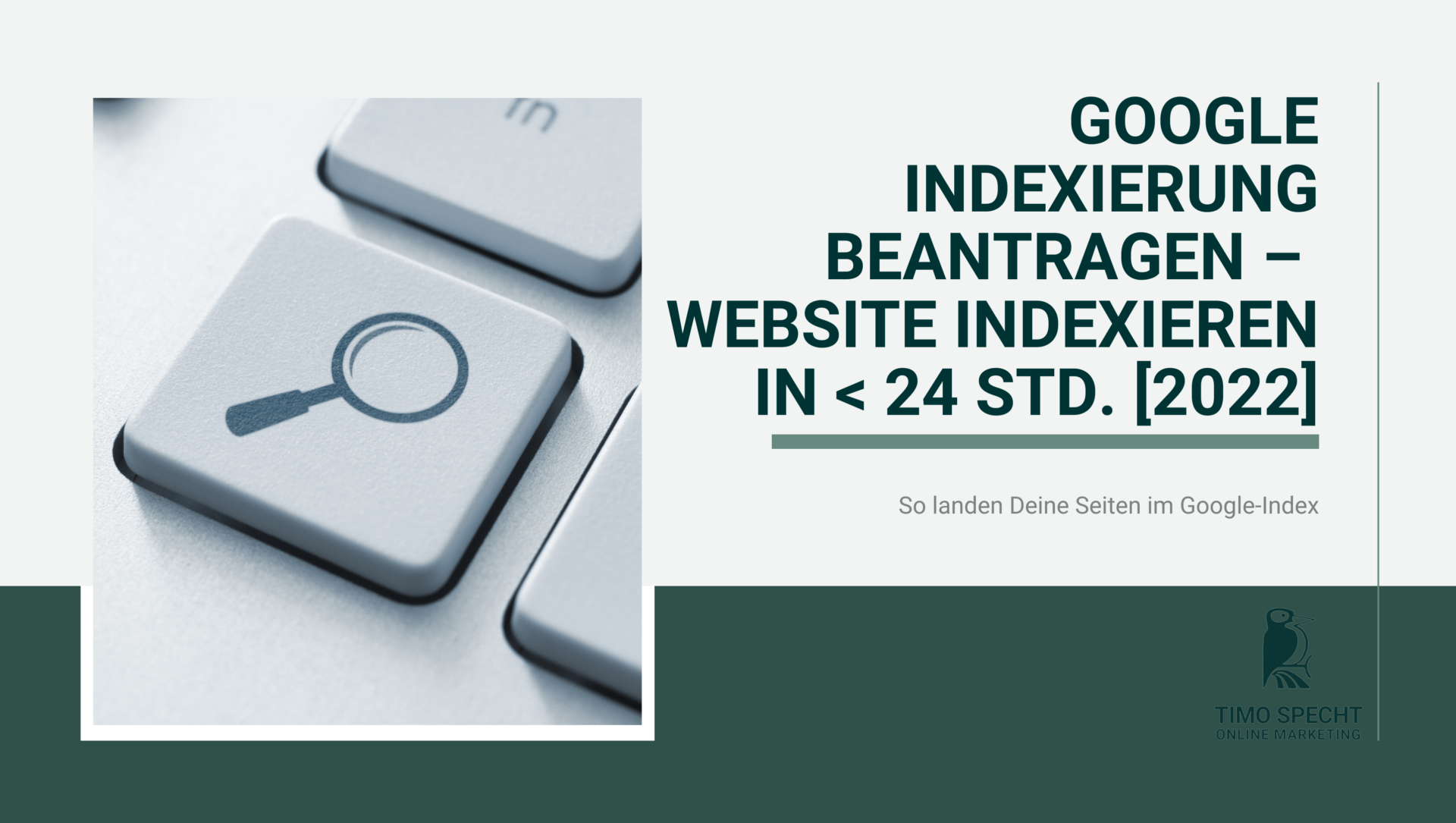Du kannst nicht länger warten? Teste jetzt unser < 24 Std. Indexierungs-Tool
Want to do the indexing yourself? Here is an overview of our indexing tips
How can I actively request indexing from Google?
The Google index includes all pages known to the search engine. Only pages that are listed in Google's database can appear on the search results pages (SERPs) can be displayed. You should therefore make every effort to ensure that all of your pages end up in the Google index so that you can achieve rankings.
Submitting an indexing request to Google is not necessarily required for your project to be found. Automatic programs, known as crawlers, scour the internet every day to find new pages and check existing ones to see if they still exist. Unlike an encyclopaedia, Google's index is therefore very dynamic and changes from second to second.
The crawlers scour the internet primarily via links that refer from one page to the next. If your page is not linked anywhere, the chance that Google will even notice it decreases massively. However, if you are linked on a high-reach page that Google's crawlers visit frequently because many links point to it, you will end up in the index much faster.
If you want to speed up the process, you can actively request Google indexing. In the past, you could use the "addurl" service to officially ask Google to add a page to the index. However, this rarely worked and the success could not be verified.
Google has changed the system a bit since then. You can manage many aspects of your presence on Google via the Google Search Console. Here you currently have the following options for having your website crawled by Google:
-
Free
SEO strategy meeting
In a free SEO strategy consultation, we uncover untapped potential and develop a strategy to make you more successful on Google.

- More organic visibility
- More organic visitors to your website
- More inquiries & sales
Option #1: Submit a sitemap

If you want to OPTIMIZE your website for LOCAL SEARCH, there is no getting around Google My Business (GMB for short). The search engine giant provides us with an incredibly versatile tool to present a company location in the right light.
Setting up the GMB entry is completed quite quickly. But then the optimization work really starts! Many of the following tips therefore relate to the GMB entry.
Option #2: Submit individual pages
Have you created a new page but already submitted your sitemap? Then you can run the URL check in the Search Console and submit a single page if it has not ended up in the index.
In principle, you could always update your sitemap, but then Google won't know whether the entire structure of your site has changed or just parts of it.

How long does it take for a website to be indexed by Google (for the first time)?
Although Google's crawlers are extremely hard-working, they are still limited in terms of capacity. Prioritization must therefore take place. SEOs like to talk about the so-called crawl budgetthat Google grants your site. The higher your crawl budget, the more frequently the Google bot will visit your site and the faster new pages will be added to the index.
There are also pages that are particularly favored for crawling due to their topicality. These include, for example, websites that are listed on "Google News" are listed. If you publish daily news, it can definitely be worth registering with "Google News" to ensure that your posts are indexed quickly.
The news is then often indexed within a few minutes. However, this strategy is not suitable for every website.
In general, you should expect that completely fresh pages will only end up in the index after a few days to weeks. If there are no links to your website, it may take even longer. The same applies to new subpages. However, it can be a little quicker here because the Google bot visits your main page more frequently and will then also find your sub-page via links.
Small checklist: How to solve Google indexing problems?
Some website operators have the feeling that their projects do not appear in Google's index because they cannot find them when they search for them. However, this is sometimes a misconception because a simple search query does not check the indexing. For example, if you have published a fresh page on the topic of "low carb diet", you will not appear in the search even after a long browse because there are many pages that currently outrank you.
Instead, you can enter the query "site:yourwebsite.com" in Google to see which pages of your website are indexed. You can also check directly whether a specific page is in the index by specifying "site:yourwebsite.com/subpage". You can also check the indexing status in the Search Console. You can also request another crawl here.
However, if none of this has led to success so far, here is my short checklist on the question "What to do if my website does not appear in the Google index?":
#1 Has the Google Bot even visited you?
In the Search Console you can see if and when the Google bot was last on your site or one of your subpages.
If it's been a while since your last visit, you may have to wait a little longer. In the worst case, however, it could also be that Google is deliberately ignoring you because you have violated the search engine 's rules, for example.
#2 Did you accidentally set the robots.txt to "noindex"?
You can not only ask Google to crawl your website, but you can also forbid the search engine to do so. You can CHECK if everything is set correctly HERE.
#3 Have you recently made technical changes to your site?
Switching from www. to naked (https://deineseite.de) or setting up the SSL certificate can cause some short-term problems. You must also note that Google normally always includes your pages in the index with a / at the end of the subpage.
#4 Was your website temporarily unavailable?
New projects in particular are always in maintenance mode at the beginning. If the Google bot has just dropped by at a time when your website was unavailable, this is of course counterproductive. So only submit the sitemap to Google when you are no longer making any major changes.
#5 Have you really done everything you can to achieve indexing? Sometimes
Sometimes a lack of indexing is simply a question of diligence. In the following, I will introduce you to the best ways to speed up indexing. But you have to implement them completely for it to work.
7 proven steps on how to finally get Google to index your website
Step 1: Login to the Google Search Console
Almost every webmaster who knows a thing or two about SEO uses the Search Console these days. You could say that using the Search Console is not a "hack" to get indexed faster by Google, but rather a hygiene factor. Without a well-maintained Search Console, you may fly under the radar for months.
Set up property (best to merge directly for all variants of the page, whether www. or without, http or https)
Store sitemap in .xml format
Register URLs manually and update sitemap if something changes
In addition to logging into the Search Console, a link to Google Analytics can also be helpful to speed up indexing. If Google notices that a new page is receiving traffic that is not yet in the index, this can influence the priority when crawling this fresh and apparently very interesting page.
Step 2: Make sure that your page can be indexed
With some CMSs, you can ensure that search engines are prohibited from indexing your site with an improper click. As mentioned above, you should check the robots.txt for this.
Another problem could be that you have accidentally set a 301 redirect or a canonical tag. In both cases, you are telling Google that the page you want to get into the index is actually not relevant because there is a newer version elsewhere (in the case of the 301 redirect) or a version with the same content that should be prioritized (in the case of a canonical tag).
If you are unsure whether you have such problems, you should get in touch with your site's technical contact. Alternatively, I would also be happy to take a look at this as part of the SEO inventory.
- I am one of the leading SEO experts in Germany
I am known from big media such as Stern, GoDaddy, Onpulson & breakfast television and have already worked with over 100+ well-known clients successful on Google.
Google rating
Based on 185 reviews
Trustpilot rating
Based on 100 reviews
Step 3: Don't chase Google away with bad content
Filling a page with placeholder texts (e.g. "Lorem Ipsum") and hoping for indexing is not clever. The Google bot doesn't have a soul, but if it did, it would probably feel pretty stupid if it visited your page and only found demo texts. Instead, the Google bot can technically check whether the page is worthy of being included in the index.
These are the minimum requirements for indexable content:
Meta title and meta description are maintained
exactly one H1 heading is defined
there is a text body that is p-formatted
I don't want to rule out the possibility that pages have ended up in the Google index in the past (and still do) that don't meet all of these criteria. However, I am convinced that well-maintained pages at least have a significantly higher chance of being indexed quickly.
Step 4: Ensure visible internal linking
When crawling, the Google bot jumps from link to link. You should therefore link new pages internally. This is not only good for usability and therefore also an internal ranking factor, but also ensures faster indexing.
You can and should link important pages directly from the homepage. The Google bot will probably pass by here more often, increasing the likelihood that your new page will be found and indexed. Google also understands that this page is apparently quite important and could therefore prioritize its inclusion in the index.
A few technical tips: When linking internally, make sure that the URL is specified exactly as you have requested indexing from Google. A coherent link text can also help to draw direct conclusions about the topic of the page. In addition, the internal link must not be marked with a "nofollow" attribute, which would prevent the Google bot from following the link.
Step 5: Share the link to your new page on social media
Of course, Google also crawls publicly accessible social media networks. If you have published new content that you want to rank quickly, you should share it publicly - e.g. on Facebook, LinkedIn & Co.
On the one hand, the probability increases that the Google bot will pick up your link by chance when it is browsing the social media network. At the same time, your posting of the link also generates a bit of traffic. If you have docked Google Analytics, the chance of a quick inclusion in the index increases.
Step 6: Start building links
Building backlinks is still perhaps the most important ranking factor for Google in 2022. Links without the "nofollow" attribute that are placed on other pages transport trust and traffic. These are two compelling arguments in favor of Google adding your site to the index.
Unlike user-generated links (e.g. on social media), Google sees backlinks as a concrete recommendation. And what other users recommend also deserves a place in the Google index and should soon work its way up the rankings, provided the quality is right and Google also detects positive user signals.
Step 7: Element thin and bad sides
Especially for large pages that are not so visible on Google, it can be a sensible strategy to remove thin and bad pages from the index. Either by deleting them completely from the website and submitting a new sitemap to Google via the Search Console or by setting the pages to "noindex".
If your crawl budget is only a few hundred queries per month, but your website has a maze of subpages, it is possible that Google will use up the entire crawl budget for checking the existing pages and consistently ignore new pages. Make sure that the Google bot understands which pages are really important to you.
- Do you know my SEO newsletter?
Register now and receive regular tips from the experts.
Conclusion: After indexing is before ranking!
If you have worked your way through my guide and solved all the technical and quality issues, your site should soon appear in the index. It's not rocket science, but it's still a bit of hard work that you shouldn't shy away from, because every day in the index is valuable.
But of course you shouldn't think that your work is finished once you have been included in the Google index. It's only just getting started. Your content can certainly still be improved in some places, link building needs to get rolling and further content should be created so that your website becomes more and more valuable for the reader and therefore also for Google.
I am happy to support you every step of the way - from topic development, text creation, design and indexing to the ongoing SEO measures that will bring your project to the top. With my help, you will not only get into the index, but also to the top of your niche.

